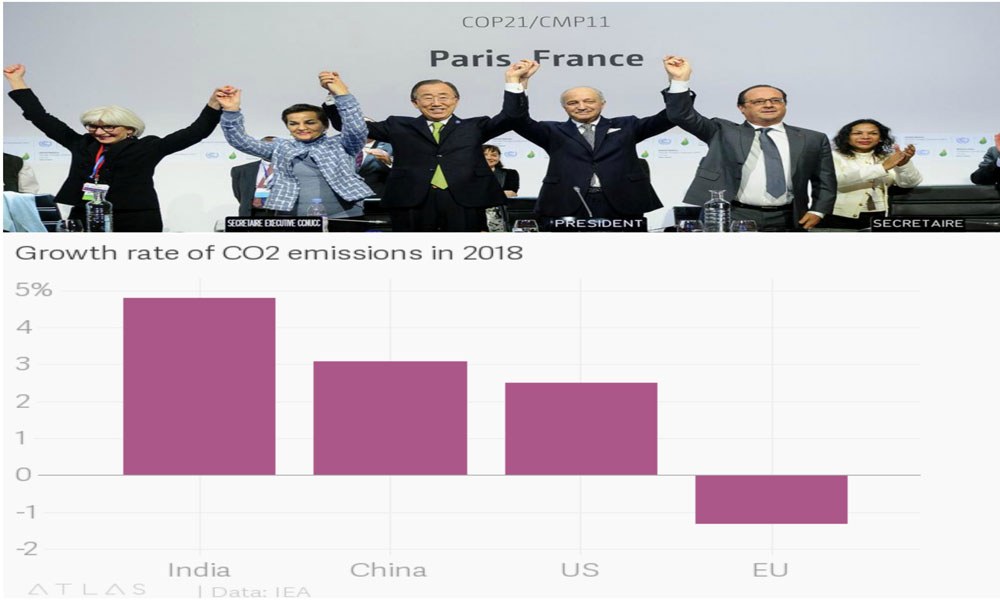Lack of will to act on climate pledges by countries delays action to reduce CO2 emissions.
By Sharathkumar Nair
Bengaluru, March 28, 2019: According to the International Energy Agency’s latest report, China, USA, and India were the top contributors to C02 emissions. The growing demand for energy globally has led to both the developing and developed countries to ignore the future of the planet.
The threat of irreversible climate change is moving closer to reality every day. Uncontrolled consumption of fossil fuels and lack of initiatives to regulate the carbon dioxide (CO2) emissions among the nations of the world has left the planet wondering about its fate.
Fossil fuels are used to power industries across the world. The burning of fossil fuels generates greenhouse gases that get trapped in the Earth’s atmosphere. These gases block the sunlight that reflects from the Earth’s surface, leading to an increase in global temperatures.
The UN requires every country to submit its climate pledges known as Intended Nationally Determined Contributions (INDC). It is an action plan by each country on reducing their carbon footprint. However, these INDC have failed to produce any considerable progress when it comes to CO2 emissions.
The United Nations Framework Convention on Climate Change (UNFCCC) initiated the Paris Agreement in 2015 to build a world lower on carbon. A total of 197 nations signed the agreement and pledged to put their best efforts to reduce their own carbon emissions.
The central aim of the Paris Agreement was to strengthen the global response to the threat of climate change by keeping the global temperature rise below 2 degree Celsius above the pre-industrial level and to limit the temperature increase to 1.5 degree Celsius.
Under this agreement, developed nations will help developing nations both technologically and financially to reduce their carbon emissions. All the signatory nations will have to report regularly on their emissions, and the implementation efforts undertaken on their part to reduce the emission.
The Paris Agreement failed to reduce the CO2 emissions so far. Lack of political will among nations to implement the policies is one of the key elements that have led to the failure of the Paris accord.
Developed countries like the USA and the UK blame developing countries like India and China (even though these two countries are members of the Paris Agreement) for the increase in CO2 emissions and expect them to cut down on industrial activities. Developing nations depend on industrialization to generate revenues and to power their economies. Developed nations made their economies stronger by following the same path of industrialization that was powered by fossil fuels.
“Developed Nations cannot preach to developing nations to cut their consumption of fossil fuels. Instead, they should help these countries with technology and provide financial aid to reduce their dependence on fossil fuels,” said Yellappa Reddy, an environmentalist based in Bangalore.
“India has to stop its dependence on coal and switch to green energy sources instead. Wind, biomass and solar are alternative energy sources that India can look up to meet its energy needs.”
“One of the major challenges with India, and many other countries, is the lack of political will to implement policies that reduce sdependence on fossil fuels. Individuals and nations should collectively ban items from factories who are not trying to reduce their CO2 emissions” he added.





